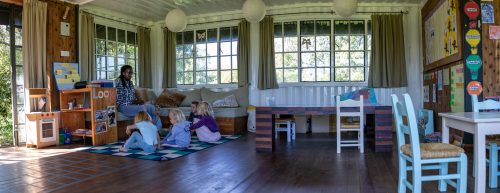
It’s such a joy raising a family in the bush, for so many reasons.
And our guests recognise this – never do we get more genuinely honest and heartfelt questions than when guests are asking about our children and what it’s like having back-of-house babies at a safari lodge.
One of the most frequently asked questions, often even before inquiring how many we have, or their ages, is “What about school?
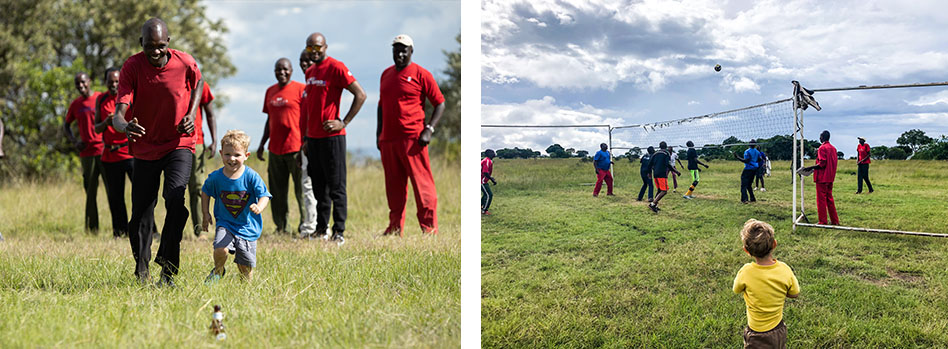
A fair enough question – what do two little expat kiddos “growing up bush” do for their education? It is admittedly a pretty unusual situation, very much an “alternative” childhood. Is there a school nearby? Are we homeschooling them? Are they just feral?
The answer is: a little bit of all the above.
A great deal of their learning comes from their unconventional environment, both natural and industrial. Living in the heart of a hospitality business means Perrin and Lulu have nearly 130 aunts and uncles looking after them, speaking to them in multiple languages, imparting various cultural lessons simply through exposure. And living in the bush means learning bush things – both of our kids could identify a hyena’s whoop or a zebra’s bark before they knew most words, know to jump with haste over a trail of siafu (safari ants), and that when things literally go bump in the night, it’s probably just the resident bushbaby or genet traversing our roof.
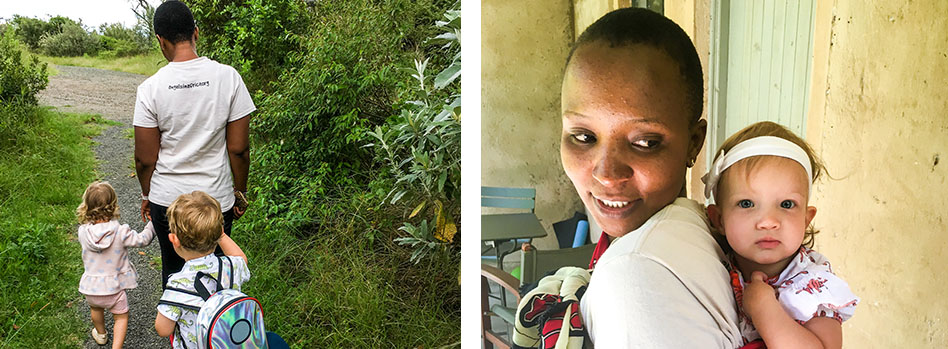
And their nanny – thank the heavens for their nanny – is so much more than that. Diana is a caretaker, a protector and, above all, a teacher (and to us, a saint). Every day, while Shan and I are tending to business around the lodge, she teaches the kids everything from days of the week to knowing right from wrong. Lately, after Lu goes down for her nap, Diana spends an hour teaching Perrin Swahili (which he already understands better than Shan or I could ever hope to, but is now mastering how to speak).
For some social interaction with kids his age, we were looking forward to sending P to the local primary school, Emurutoto, with its some 900 students from the surrounding communities, once he turned three. Alas, Covid-19 hit and the school has been closed since his birthday.
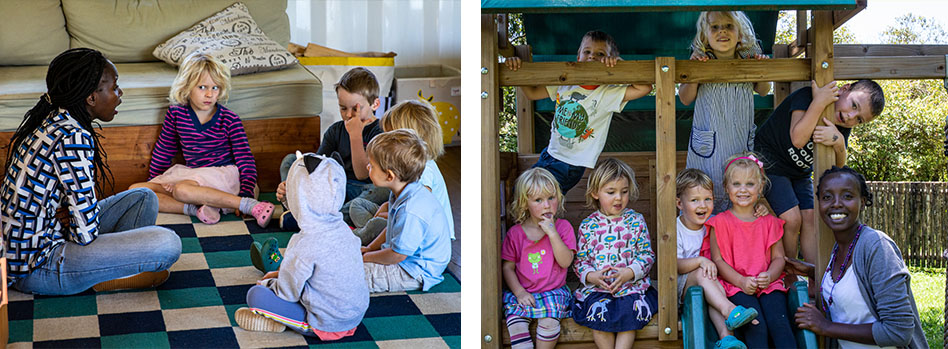
But that’s not the only school around, and for the last year or so we’ve been sending P to what is known fondly as the “Mara Bush School” by its pupils and their parents.
Technically more of a daily playgroup than a bona fide school, it attracts anywhere from three to nine “bushbabies” on a given day, currently ranging in age from three to six years old. Perrin travels the farthest, a little over an hour and a quarter, so typically only goes once or twice a week, while the families stationed around the Mara Elephant Project, where the school is located, can walk to class daily.
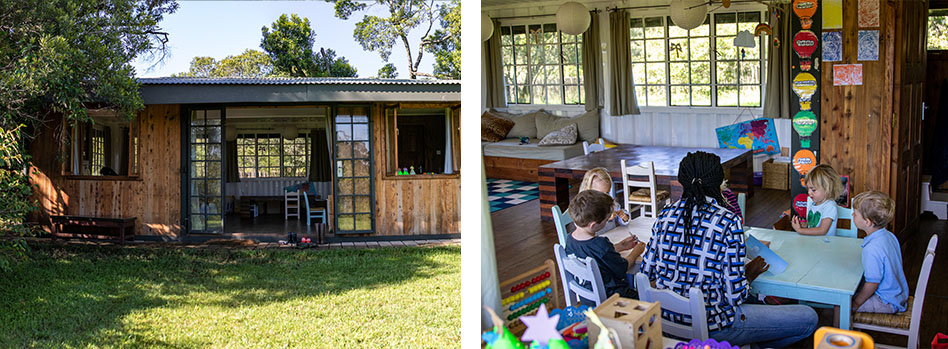
Janette, their wonderfully patient teacher, applies a Montessori-style approach, with every day bringing new themes or focuses as the group engages in self-directed creative activities and collaborative group play. Perrin loves it, and looks forward to it more than anything else.
But he’s not the only one – it is also a weekly highlight of mine to drive with P in my lap, past giraffes and zebras and the occasional elephant or lion, so that I can sit outside at the shaded picnic table, working through my inbox, while listening to all the laughing and singing and general joyful carrying on that comes from within the converted shipping container that is their humble yet handsome schoolhouse.
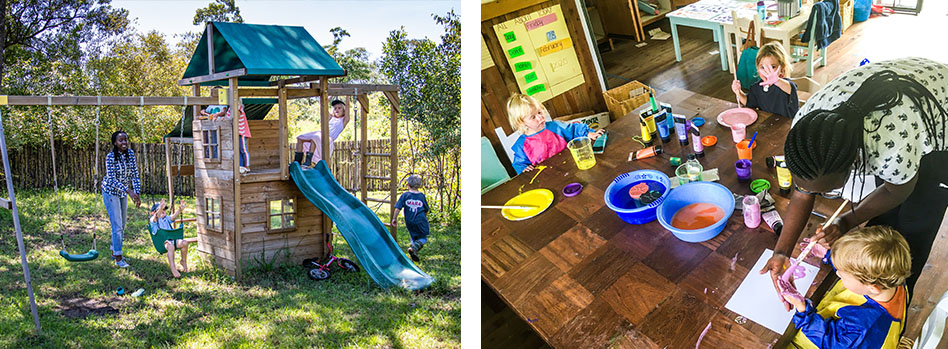
Since March, regrettably, the school has been temporarily shuttered while we, along with the rest of the world, wait cautiously to better understand the implications and trajectory of Coronavirus.
Happily for us, Adam’s fiancée, Diana (who Perrin affectionately calls “Teacher Diana” to differentiate from their nanny), joined us at Angama ever since the school she teaches at also shut down in March. In addition to continuing her tutelage virtually to her students from Pembroke School, and starting her own online teaching business (“Teach the Wild” – it has taken off like a rocket), she also gives our staff English lessons and spends one hour a day three days a week one-on-one with Perrin.
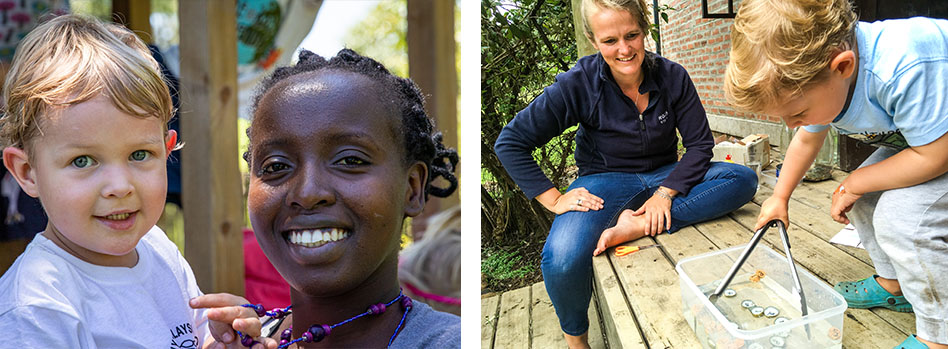
As unconventional as it may be, I don’t think we could have designed a better education system for our kids – diversified, genuine, practical. The old adage “it takes a village to raise a child” originated in Africa (I’d always suspected this, but had to look it up to be sure), and we’re in no rush to do anything different.
Filed under: Inside Angama
Subscribe for Weekly Stories
Comments (4):
23 June 2020
What a brilliant childhood those kids are living! How lucky they are, in particular for the language opportunities. My daughter-in-law is French, and is bringing up my granddaughter (who is only 9 months old right now) speaking French to her, in Melbourne, Australia, while my son speaks English. I think how wonderful it is that Chloe is learning two languages from birth - but then to imagine having the Mara as your backyard! It’s like an adventure novel.
23 June 2020
Absolutely Fantastic. I knew it would be the best decision you ever made to raise your kids in the bush. Love it.
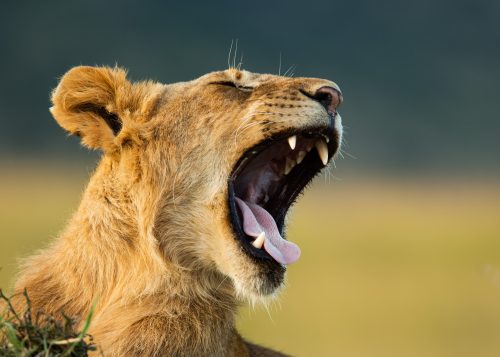
Angama Safari Offers